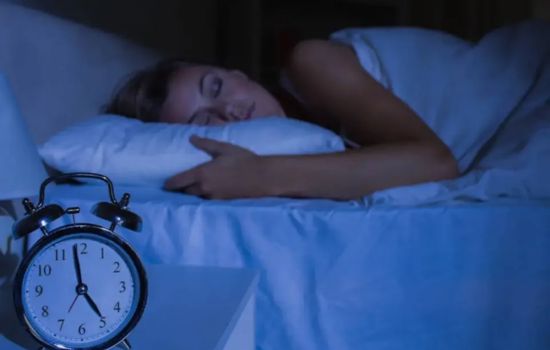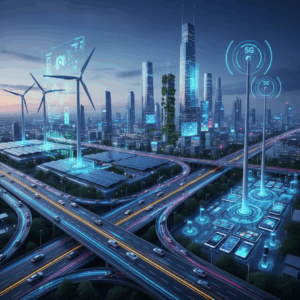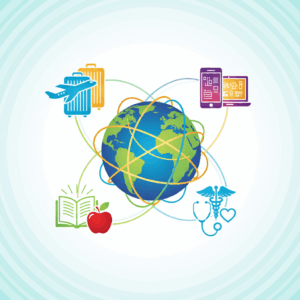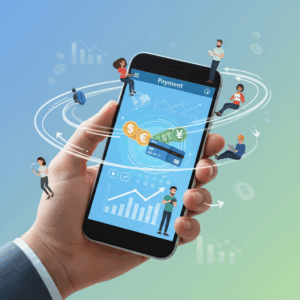We live in an era where rest has become a precious asset, but also a mystery: Am I getting enough sleep? Is my sleep truly restorative? How can I improve my nights using the technology in my pocket?
In this post, we'll explore three apps that can help you monitor, understand, and optimize your sleep cycle: the Sleep Cycle app, the SleepScore app, and the Loóna tool.
We'll analyze them, look at their strengths, weaknesses, who they're most useful for, and finally, I'll give you a conclusion so you can decide which one could accompany you on your path to better rest.
Loóna: Bedtime relax & Sleep
★ 4.4Information on size, installation and warranty may vary as updates are made in official stores.
See also
- Sing like a pro
- A step further in communication
- Choose the best platform to watch anime: App guide
- Learn to crochet with apps: creativity in the digital age
- Your phone as a universal remote: the power to control
Why use sleep monitoring apps?
Sleep isn't simply a matter of "blowing your eyes and waiting." It's actually made up of cycles, stages, interruptions, pre-sleep habits, and environmental factors that we often ignore. Using a well-designed app can help you put a name and number to what was once a vague sensation ("I feel tired," "I didn't rest well"), and turn it into concrete data you can monitor and improve.
When you analyze your dream you will see that it not only matters how many hours you slept, but what hours, at what stages, how often you woke up, and how you got upWith this kind of information, you have tools to improve: adjust your bedtime, improve your bedroom environment, change pre-sleep habits, etc.
Now, not all apps do the same thing. Some focus more on relaxing before bed, while others focus on accurately measuring what happens during the night. Let's look at three options that represent different approaches.
1. Sleep Cycle
The Sleep Cycle app is positioned as a “smart alarm clock” and sleep tracker that uses your phone’s microphone and/or accelerometer to analyze your movements, sounds, and sleep stages.
What it does
- It detects how long you slept, how many times you woke up, and what stage of sleep you were in before your alarm went off.
- It has a “smart alarm” feature that seeks to wake you up at the lightest moment of sleep within a time window you define.
- Displays graphs and sleep history to help you see trends.
What you should know
- Although easy to use, it depends heavily on the phone being positioned correctly, there being little external noise, and the battery lasting through the night.
- Some users comment that the app has changed its policy on free features and that certain features now require a subscription.
Who is it useful for?
If you are the type who wants measure and see If you're interested in what's happening with your sleep, and especially how you wake up in the morning, Sleep Cycle is for you. Also, if you're concerned about avoiding waking up in deep sleep and feeling more rested when you wake up, Sleep Cycle is for you. If your biggest problem is "I can't fall asleep" or "my mind won't relax," you might want to complement it with another app.
2. SleepScore
The SleepScore app offers a more rigorous approach to sleep measurement and analysis. According to its own information, it uses sonar technology to measure your breathing and body movements while you sleep.
What it does
- Just by holding your phone next to you, without needing a wearable device, it already measures sleep phases (light, deep, REM), time to fall asleep, frequency of awakenings, etc.
- It gives you a “sleep score” (SleepScore) that summarizes the quality of your rest in an understandable way.
- Offers personalized recommendations based on your sleep data: environment, habits, etc.
What you should know
- While you don't need a watch or other device, accuracy has its limits: no mobile app can completely replace a professional sleep study. It's useful as a guide, not as a clinical diagnosis.
- More advanced features are reserved for the paid version.
Who is it useful for?
If you are interested in understanding what happens during the night If you're looking for a more in-depth approach and are willing to spend some time looking at the data, SleepScore is a great option. If you want something lighter or less focused on technical metrics, another app may be a better fit for you.
3. Loóna
The Loóna app introduces a different approach: more focused on the preparation for sleep than in a purely nighttime analysis. Loóna offers relaxing routines, guided sessions, stories, and activities to calm the mind before bed.
What it does
- Shift your focus from "I'm going to sleep and then we'll see what happens" to "I'm going to prepare my mind and body for a good night's sleep." Emotions, mental environment, and accumulated stress all matter.
- Each evening, you can follow a recommended session that combines storytelling, music, and visuals to help you unwind from the day.
What you should know
- It's not as powerful as a sleep phase tracker (it doesn't measure "how much REM I had" or "how many times I woke up" as finely as it does) in its basic version.
- Like the others, many full features require a subscription.
Who is it useful for?
If your biggest obstacle is "I can't sleep well" or "my mind won't shut off at the end of the day," Loóna can make a big difference. If you already fall asleep without difficulty but wake up tired, a tracking app might be more of a priority.
Beyond apps: habits that matter
While apps are useful tools, they won't do everything for you. Here are some guidelines to consider when using them:
- Establishes a regular bedtime and wake-up time, even on weekends. The body works best with consistency.
- Take care of the environment: dark room, adequate temperature, mobile phone far away or in silent/airplane mode to avoid interruptions.
- Avoid caffeine or screens just before bed. Blue light and mental stimulation make it difficult to fall into deep sleep.
- Use the app you have chosen as a guide, not as an obsession. You'll see data, but the most valuable thing is what you do with that knowledge (habit adjustments, reflection, improvements).
- If you see worrying patterns in your data (a lot of awakenings, little deep sleep, daytime sleepiness), you may want to consult a sleep specialist.
Final comparison
To summarize in a simple comparison:
- Sleep Cycle: Best for those looking to wake up more naturally and see how they sleep overall.
- SleepScore: Ideal for those who want to fully understand their sleep, with detailed metrics and personalized guidance.
- Loóna: perfect for those who want to optimize the moment before sleep, focusing on relaxing, calming the mind and preparing for better sleep.
Each has its own approach, advantages, and specifics. Ideally, you'd choose the one that best aligns with your primary need: sleeping more easily, waking up more comfortably, or monitoring depth. What's more, you could combine them: for example, using Loóna before bed + SleepScore to measure the night + Sleep Cycle as a secondary option.

Conclusion
Getting a good night's sleep isn't a luxury: it's a key necessity for our physical, mental, and emotional health. The apps we've reviewed—SleepCycle, SleepScore, and Loóna—offer different ways to take control of this important aspect of your life. An app can help you see what happens, another to prepare yourself before sleeping, another one adjust how you wake up. But what will really transform your rest is what you do with the information: your habits, your environment, your consistency.
I invite you to choose one of these apps, install it this week, use it at least seven nights in a row, observe what it shows you, make a small adjustment (like going to bed 15 minutes earlier or turning off your phone), and see how you feel when you wake up. If you'd like to explore more options later—especially apps in Spanish or designed for Latin America—I can help you find an expanded list with five, 10, or more tools. Would you be happy if I did that?





